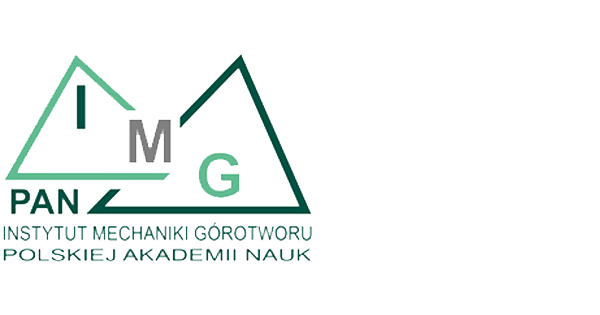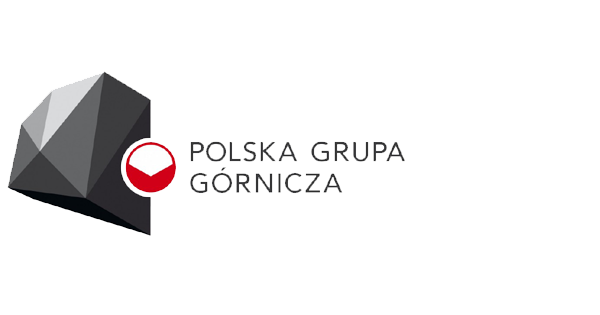
DMT GmbH & Co. KG
Essen, Germany
DMT, a member of TÜV Nord Group, provides complex solutions in the field of geomonitoring, including custom development of hardware and software components. DMT has participated in several research projects such as GMES4Mining to monitor the impact of mining, as well as in the EU projects EOMD Mining and GMES-Terrafirma (both ESA funded projects) to develop solutions for project-related tasks. DMT is in particular involved in the area of early detection and monitoring of geohazards in international research projects, like in the BMBF project Yangtze Geo at the 3-Gorges Dam in China. Of particular relevance is the expertise from a variety of developments from commercial assignments, e.g. the development of geomonitoring systems for the cave-in rescue work at the Cologne City-Archive (Germany) and the online monitoring of sinkholes in Schmalkalden and Tiefenort in Thuringia (Germany), using a complex multi-sensorial network consisting of geotechnical, seismological and geodetic measuring methods.

TU Bergakademie Freiberg
Freiberg, Germany
The Technical University Bergakademie Freiberg (TUBAF) is the oldest mining university in the world with nearly 250 years of history in research and education. Four core fields – geo, material, energy, and environment – provide thereby a unique and unmistakable profile as the University of Resources. The Department for Mine Surveying and Geodesy as part of the Faculty of Geosciences, Geoengineering and Mining has a focus on various tasks along the process chain in mining. It has a long-term experience in capture, analysis, modelling, evaluation, management and provision of geo-information in the context of active and abandoned mining applications. Its vision is to turn geodata into mining intelligence. Current research projects include the H2020project Real-Time Mining, RFCS funded project RTRO-Coal (Real-Time Reconciliation and Optimization in large open pit coal mines) and the German r4-funded project UPNS 4D+ (Underground 4D+ Positioning, Navigation and Mapping System for highly selective, efficient and safe production of economy-strategic mineral resources).

Delft University of Technology
Delft, Netherlands
Delft University of Technology (TU Delft) is the largest and most comprehensive university of engineering sciences in the Netherlands and develops technologies for future generations, focusing on sustainability, safety and economic vitality. The Faculty Civil Engineering and Geosciences houses the Department of Geoscience and Engineering, which seeks efficient control and use of the earth crust resources and permanent maintenance of the geological infrastructure. The Department employs about 200 people including ca. 100 PhDs. With the proven excellence of the sections in Resource Engineering, Petroleum Engineering and Geo-Engineering, TU Delft offers the expertise in mine planning, subsidence, slope stability, numerical modelling, spatial variability and uncertainty, and inverse analysis to the consortium.

Airbus Defence and Space GmbH
Ottobrunn, Germany
The project will be conducted by the Airbus’ legal subsidiary entity Airbus Defence and Space GmbH is based in Ottobrunn in the district of Munich. The project team is embedded into the Intelligence Programme Line of Airbus Defence and Space. The Intelligence Programme Line is a recognised world leader in geospatial data provision and defence intelligence. It is a global supplier of commercial satellite imagery. Based upon proprietary commercial access to the Pléiades, SPOT, TerraSAR-X and TanDEM-X optical and radar satellites, combined with comprehensive applications experience, Airbus Defence and Space delivers a broad product and services portfolio spanning the entire geo-information value chain. With more than 30 years of experience in data acquisition, processing, data management and hosting, we deliver sustainable solutions that deliver exactly what you need, when and where you need it - across a comprehensive range of markets, addressing defence & security, commercial and civil institutional customers. The project team has a long term experience in the application of SAR-interferometric remote sensing techniques. In 2013, the time series analysis product of Airbus was certified "fully conform" to the Terrafirma quality standards by the independent German Aerospace Center (DLR).

Lausitz Energie Bergbau AG
Cottbus, Germany
With 8,000 employees, Lausitz Energie Bergbau AG (LEAG) is one of the largest German energy and mining companies and one of the largest private employers in East Germany. Lignite today accounts for a quarter of the German power generation. About 60 million tonnes of brown coal is being harvested by LEAG every year. Almost every tenth kilowatt hour of electricity consumed in Germany produce the power plants of LEAG in Brandenburg and Saxony. LEAG has four Lusatian opencast mining sites Jänschwalde and Welzow-Süd in Brandenburg as well as Nochten and Reichwalde in Saxony. In the approved mining fields, there are currently about 900 million tonnes of brown coal. The planned Cottbus-Nord opencast mine in 2015 is currently being converted into a lake, the future Cottbus Baltic Sea. The operation of open-cast mining generally requires a large-area lowering of the groundwater level. This measure is accompanied by subsidence and deformation on the ground surface. Movements and associated effects have to be regularly monitored, also on the requirement of official guidelines and authorities. In addition open pit slopes have to be monitored for deformations and their stability. Specific for these monitoring purposes, innovative methods are applied of the LEAG within the research project i2Mon and developed further in terms of their accuracy, reliability and information content. LEAG will accompany the developments with the know-how of a major industrial partner and the goal of a specific adaptation to the requirements of a mining user.

EFTAS GmbH
Münster, Germany
EFTAS Fernerkundung Technologietransfer GmbH (EFTAS) headquartered in Muenster, Germany, was founded in 1988 and is providing services on global level for the private and public sector in the fields of geospatial Information Technology (GeoIT) focusing on Mapping and monitoring of natural resources, raw materials, environment and water, infrastructure, forestry and agriculture. EFTAS services for the raw material sector focus on exploration of primary and secondary resources and monitoring of mining activities including environmental monitoring.

IMG PAN
Krakow, Poland
The Instytut Mechaniki Górotworu Polskiej Akademii Nauk (IMG-PAN) is a state scientific institution founded in 1952. It has become a major scientific advisory body through its scientific committees and research institutes. It successfully combines theory, modelling, laboratory and in situ experiments together with practical applications mainly in the fields of mining safety engineering and the impact of mining activity on the natural environment.

Mainz University of Applied Sciences
Mainz, Germany
Hochschule MAINZ – University of Applied Sciences (MAINZ) is located in the Rhine-Main metropolitan area around Frankfurt. The discipline “Geoinformatics and Surveying” is part of the faculty “Technology”, which is one of the three faculties of Hochschule Mainz. In 1998 a part of the teaching staff of Geoinformatics and Surveying founded the Research Institute for Spatial Information and Surveying Technology “i3mainz”. The institute has (roughly summarized) knowledge and experience in the fields of image processing, photogrammetry, remote sensing, surveying / geodesy, robotics, GIS, 3D-visualization, Internet development and software engineering. The comprehensive pool of information and knowledge which is gradually evolving is available to all i3mainz staff members for their own research. i3mainz is exclusively project financed and according to this financial base and the resulting number of more than 20 scientific staff members (master-degree, phd-students) the largest institute of Hochschule Mainz. Thus in the research profile of Hochschule Mainz four of six defined action fields comply with the research topics of i3mainz.

Laserdata
Innsbruck, Austria
LASERDATA is a technology-driven company dedicated to provide geospatial point cloud data management, processing and analysis solutions. Founded in 2007 as a spin-off from the University of Innsbruck (Department of Geography) the company is offering services and software solutions to different markets, ranging from research institutions to companies and governmental agencies. In the frame of the intended project Laserdata as spin-off links to the Department of Geography for the UAV based data acquisition by the Riegl RiCOPTER UAV in combination with the Riegl VUX-1LR Laser scanner.Laserdata itself has in house capacities to store and process massive datasets of point cloud data by use Ubuntu operating systems for optimized processing automation. The companies’ own software LIS has more than 200 modules for point cloud data processing and management. LIS in combination with the open source GIS SAGA (System for Automated Geoscientific Analyses) is widely spread in the research community for digital relief analysis and point cloud processing. Beside the functionalities of point cloud and raster terrain preparation, core tools comprise the calculation of morphometric features and statistics, as well as various methods of segmentation and terrain classification. As company partner, Laserdata is a long term user group member with the SAGA developer group and actively contributes to the software development of SAGA. The team can use and adapt more than 650 tools for geoscientific data analysis and develop new algorithm packages.

Polska Grupa Górnicza
Katowice, Poland
Polska Grupa Górnicza sp. z o.o. (PGG) is Europe's largest coal company which employs about 43 thousand people. The mining area is located in the Upper Silesian Coal Basin. PGG extracts coal, which is primarily used for energy production and is sold to energy companies, industrial users and individual consumers. The Company extracts coal in 9 underground mines and owns 5 specialized units. The company produces about 30 million tons of coal annually, which accounts for 39% of the production of this raw mineral in Poland. With its resources PGG’s guarantees the long-term supply of this fossil fuel. Coal produced in PGG mines, in terms of quality, is one of the best steam coals available on the Polish market. Due to good and stable coal quality in the deposits and the consequence of product improvement policy all types of coal meet the requirements of the emissions standards. The applied coal mining and processing technologies, knowledge and competences enabled optimizing the production processes and consequently to offer a wide range of cola products on the market, meeting all demands of our customers. Company’s mines extract coal seams with use of longwall shearers and roof supporting systems infraction. PGG upgrades the basic longwall and roadway equipment to improve reliability and to reduce the failure rate of installed equipment and improve health and safety conditions. The ventilation structure of the mines is also modified by eliminating unnecessary excavations. The company is interested in development and improvement of mining impact and environmental monitoring services that increase operation safety, influence predictability and decrease costs in mining damage compensation and land reclamation.